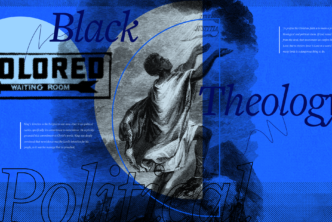The Apostles’ Creed has united Christians across centuries, continents, and traditions. It proclaims eternal, world-changing truths that work themselves into the smallest corners of daily life.
We believe them. We recite them. But do we build our lives on them?
In this excerpt from The Apostles’ Creed: A Guide to the Ancient Catechism, author Ben Myers argues that the Creed is much more than doctrine or a list of concepts and ideas:
It is so easy to forget what the Christian faith is really about. We might slip into the assumption that it is a kind of philosophy, a comprehensive view of life and the world. Debates with atheists are often carried out on this level. We give the impression that Christianity has to be cleverer than atheism if it is to be true. Or we might assume that the Christian faith is essentially a religious doctrine, a set of accurate beliefs about God. Scholars and students are especially vulnerable to this assumption. We start out trying to get a clearer understanding of our beliefs, and before long we have come to feel that those beliefs, if they are to be true, have to be flawlessly integrated into a theological system.
There is some truth in all this. But such approaches become misleading whenever they give the impression that Christianity is essentially a theory. If Christianity is a theory, then salvation is ultimately an intellectual matter. It is about getting rid of the wrong ideas and acquiring the right ones.
The Apostles’ Creed is concerned with doctrine. The ancient catechism was meant to help believers get a clear outline of the teaching of Scripture. There are some underlying doctrinal patterns in the creed: belief in God as Father, Son, and Holy Spirit; and belief in creation’s goodness, its redemption, and its final glorification. Still, it’s important to notice that the creed isn’t a list of concepts and ideas. At the center of the creed is a story, or at least the summary of a story. We are meant to take our bearings not just from doctrine but from history: from a sequence of events that occurred in a particular time and place.
The baptismal confession centers on a name: the name of Jesus. And in case we start to think that “Jesus Christ” is a theoretical concept, the creed adds a second name: “Jesus—the one who suffered under Pontius Pilate.” Pontius Pilate is there to remind us that God has acted at a particular moment in human history. The salvation of the world can be dated. Certain people were there when it happened.
The heart of Christianity is not an idea but a brute fact. Not a theory but a particular human life. Not a general principle but a person with a name: Jesus, who suffered under Pontius Pilate.
***
In The Apostles’ Creed: A Guide to the Ancient Catechism, Meyers shows us what about the Christian faith is so counter-cultural. He causes us to take a second, deeper look at the truths of the Apostles’ Creed and consider whether our allegiance to them matches their significance.
Get The Apostles’ Creed today.





